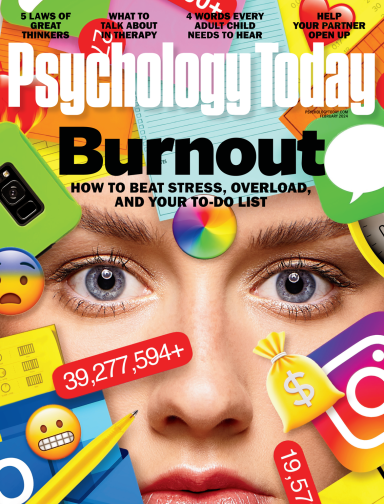HOW MANY DECISIONS DO YOU MAKE A DAY?
Verified by Psychology Today

Attention
How Many Decisions Do We Make Each Day?
The number of choices is hard to estimate, but it’s higher than you’d expect.
Posted September 27, 2018 | Reviewed by Matt Huston

How many decisions do we make each day?
Source: geralt/Pixabay
How many choices have you made today? I have made rather many, and it isn’t even nine o’clock yet. When my alarm went off this morning, I decided—grumpily—to get out of bed instead of pressing the snooze button. I decided to challenge myself to a fast-paced yoga session, to have a long hot shower, and to put on a fabulous glittery princess dress plus tiara for work.
Just kidding. I obviously chose a smart, inoffensive and suitably boring shirt-and-skirt combo. I decided to breakfast on fruit with yogurt, ditch the bus and walk to work. On my way, I chose to listen to some upbeat pop classics rather than tuning in to BBC Radio 4 news and what would have been another dreary half-hour or so of Brexit updates. I decided to walk fast because it was drizzling, to pop into Sainsbury’s, to dodge a colleague, to pet a dog, to smile at a stranger, to text my sister, to use the main work entrance, to check my pigeon hole, to take the lift upstairs and to make tea rather than coffee.
I guess we can all agree that (1) my early mornings are insipidly predictable (shame about that princess dress!), and that (2) I, like most people, make lots of decisions all the time.
In fact, some sources suggest that the average person makes an eye-popping 35,000 choices per day. Assuming that most people spend around seven hours per day sleeping and thus blissfully choice-free, that makes roughly 2,000 decisions per hour or one decision every two seconds.
article continues after advertisement
But does this enormous figure really hold up? You just spent about 50 seconds reading the first paragraphs of this blog. In theory, you should have made 25 decisions since choosing to give this post a try. In reality, that number seems counterintuitive if not outright silly. Chances are, you won’t recall making any decisions at all during this short space of time. But didn’t you make a quick judgement whether or not to carry on reading after the first sentence? (By the way, thanks for sticking with it.) Didn’t you decide to ignore a smartphone notification, or take a sip of coffee, or reposition yourself, scratch your arm, suppress a yawn, pick your nose?
Granted, it might be rather difficult to put a hard number these decisions. I do wonder how the estimate of 35,000 choices was derived in the first place. Did some poor research assistant spend a whole day taking note of every minute detail of every fleeting choice that crossed her mind? Furthermore, any estimate will heavily depend on a person’s very own definition of decision making. Was that nose-picking a conscious choice or more of an unconscious reflex? What does it matter anyway? Finally, not all decisions may be important in the grander scheme of things. At the end of the day, what difference does it make if you decide against an immediate response to the ping of a new online message?
While all this is true, we cannot deny being faced with a never-ending stream of decisions from the moment we crawl out of bed in the morning. And—even if it’s rare—small choices can have big consequences. We must not underestimate the butterfly effect, a concept according to which even tiny actions such as the flapping of a butterfly’s delicate wings can result in big events such as raging storms. By momentarily ignoring your phone, for example, you could miss an offer for a lifetime dream job or a one-in-a-million match on a dating app.
Now, I’m definitely not suggesting we obsess over every single phone notification so as not to miss opportunities. Too many people suffer from phone-related distraction and procrastination already, which in itself can influence decisions in other areas of life. Instead, I am arguing for more awareness of the vast quantity of choices that present themselves each day. No matter the exact number of daily decisions, we might as well pay attention to them, because—as author John C. Maxwell famously put it—“Life is a matter of choices, and every choice you make makes you.”
article continues after advertisement
Yoga to increase awareness
In this post, I have been trying to demonstrate the plurality of choices we are faced with on a daily basis, many of which are made on autopilot. Sometimes we aren’t even aware of having an option. Increased awareness and mindfulness can help us navigate our daily maze of decisions and support our concentration.
One way to increase awareness through yoga is to practice pranayama or conscious breath exercises. Breathing typically happens automatically and often goes unnoticed. By focusing in on this natural process, we can become more aware of ourselves and our surroundings. A great place to start a conscious breath practice is alternate nostril breathing (Nadi Shodhan pranayama), expertly demonstrated by the one and only Adriene Mishler. Why don’t you give it a try?
About the Author

Eva Krockow, Ph.D., is a researcher in decision making at the University of Leicester.
Online:
advertisement
Attention Essential Reads

The Secret Power of Mind-Wandering

What Animal Tracking Can Teach You About Self-Awareness



Your Brain Is Bad at Doing Everything Everywhere All at Once
advertisement
Get the help you need from a therapist near you–a FREE service from Psychology Today.

Cities:
- Atlanta, GA
- Austin, TX
- Baltimore, MD
- Boston, MA
- Brooklyn, NY
- Charlotte, NC
- Chicago, IL
- Columbus, OH
- Dallas, TX
- Denver, CO
- Detroit, MI
- Houston, TX
- Indianapolis, IN
- Jacksonville, FL
- Las Vegas, NV
- Los Angeles, CA
- Louisville, KY
- Memphis, TN
- Miami, FL
- Milwaukee, WI
- Minneapolis, MN
- Nashville, TN
- New York, NY
- Oakland, CA
- Omaha, NE
- Philadelphia, PA
- Phoenix, AZ
- Pittsburgh, PA
- Portland, OR
- Raleigh, NC
- Sacramento, CA
- Saint Louis, MO
- San Antonio, TX
- San Diego, CA
- San Francisco, CA
- San Jose, CA
- Seattle, WA
- Tucson, AZ
- Washington, DC
Are you a Therapist? Get Listed Today
More from Eva M. Krockow Ph.D.

Cognition
4 Min Read
How Metaphors Shape Our Thinking
Metaphors such as “time is money” are a common feature of human language and often go unnoticed.

Social Media
3 Min Read
How to Guard Yourself Against Fake News
Misinformation is a large problem when using online news and social media.

Behavioral Economics
4 Min Read
6 Types of Nudges Can Affect Your Choices
Nudges refer to small cues from our choice environment that can affect people’s decisions.

Cognition
4 Min Read
“What If” Thinking Could Improve Our Choices
Counterfactual thinking refers to the human tendency to consider how things might have been different.
More from Psychology Today

Attention
7 Min Read
Why You Don’t Think You’re Beautiful
Loss aversion causes people to focus more on negative aspects of their personal appearance.

Attention
2 Min Read
This statement is a paradox.

Self Tests
3 min
How well do you focus?

Attention
6 Min Read
Reliance on an eternal afterlife only postpones the question of life’s purpose.

Attention
4 Min Read
Why Listening to a Book Is Not the Same as Reading It
It’s better. But only in certain cases.

Attention
5 Min Read
What to consider and how to respond.

Attention
5 Min Read
How (and Why) to Play Hard to Get
Playing hard to get can determine if someone is interested in investing in a relationship or wants a fling.

Attention
6 Min Read
When a Controlling Mother Plays the Victim
Playing the victim is a form of maternal control and often includes scapegoating a child.



Recent Issues






Psychology Today © 2024 Sussex Publishers, LLC
Find a Therapist
- Get Help
- Find a Therapist
- Find a Treatment Center
- Find a Psychiatrist
- Find a Support Group
- Find Online Therapy
- United States
- Austin, TX
- Brooklyn, NY
- Chicago, IL
- Denver, CO
- Houston, TX
- Los Angeles, CA
- New York, NY
- Portland, OR
- San Diego, CA
- San Francisco, CA
- Seattle, WA
- Washington, DC
Get Help
Mental Health
Personality
Personal Growth
Relationships
Family Life
Do I Need Help?
Recently Diagnosed?
Talk to Someone
- Find a Therapist
- Find a Treatment Center
- Find a Psychiatrist
- Find a Support Group
- Find Online Therapy
Magazine

Sticking up for yourself is no easy task. But there are concrete skills you can use to hone your assertiveness and advocate for yourself.
Today
News
- TMS Outperforms Medication in Study of Treatment-Resistant Depression
- Why We Get Excited During Sporting Events
- 5 Techniques to Deal With Others’ Unproductive Mindsets
- What Makes People Stick Together During Good Times and Bad?
Essential Reads
- Even Fitness Instructors Need to Work on Body Image
- Do Cats Feel Grief?
- 3 Ways to Navigate an Ultra-Processed World
- The Many Facets of the Self
Trending Topics
See Allhttps://consentcdn.cookiebot.com/sdk/bc-v4.min.html
